GET A HEAD START ON YOUR PERSONAL AND PROFESSIONAL DEVELOPMENT. OR GAIN ACCESS TO INDIGENOUS PERSPECTIVES TO HELP GROW YOUR ORGANIZATION.
Future Wabanaki is a partnership between NB employers, universities, Indigenous students, and the Government of New Brunswick. It works to ensure that Indigenous university students have equal access to meaningful and valuable real experiences with local employers, while connecting employers with top New Brunswick talent.
These are not just jobs, and Experiential Learning has been a part of the Wabanaki people here since time immemorial. Hands-on, pride fulfilling, and culture-based ideologies must come into play for an Indigenous student to succeed in their career and in life. This is part of the Holistic way the Wabanaki people believe will bring forth true success.
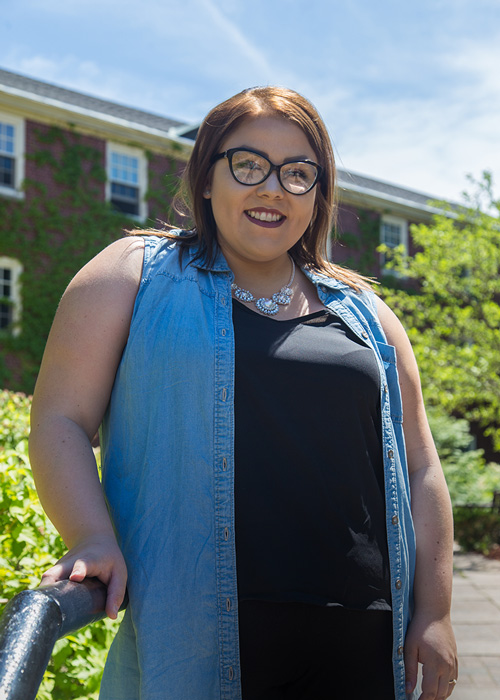

GET A HEAD START ON YOUR PERSONAL AND PROFESSIONAL DEVELOPMENT. OR GAIN ACCESS TO INDIGENOUS PERSPECTIVES TO HELP GROW YOUR ORGANIZATION.
Future Wabanaki is a partnership between NB employers, universities, Indigenous students, and the Government of New Brunswick. It works to ensure that Indigenous university students have equal access to meaningful and valuable real experiences with local employers, while connecting employers with top New Brunswick talent.
These are not just jobs, and Experiential Learning has been a part of the Wabanaki people here since time immemorial. Hands-on, pride fulfilling, and culture-based ideologies must come into play for an Indigenous student to succeed in their career and in life. This is part of the Holistic way the Wabanaki people believe will bring forth true success.
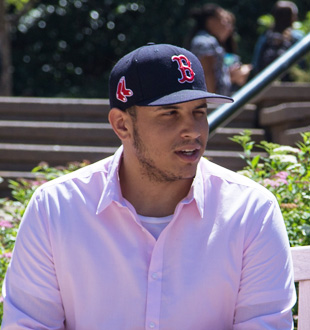
Students
Future Wabanaki can help you:
- Build a stronger bridge between your academic learning and real work through a variety of experiential learning opportunities on or off-campus
- Connect directly with New Brunswick employers earlier, increasing your ability to attain meaningful careers in the province upon graduation
- Gain skills and competencies you will need to remain competitive while responding to the labour market demands throughout the province
Employers
Future Wabanaki can help you:
- Connect directly with students to recruit and retain skilled, tech-savvy talent to your organization
- Increase your ability to resource and staff new projects or positions and drive innovation in your organization
- Strengthen the skills and competencies of the future labour force and develop insight into the future of New Brunswick’s labour market

Students
Future Wabanaki can help you:
- Build a stronger bridge between your academic learning and real work through a variety of experiential learning opportunities on or off-campus
- Connect directly with New Brunswick employers earlier, increasing your ability to attain meaningful careers in the province upon graduation
- Gain skills and competencies you will need to remain competitive while responding to the labour market demands throughout the province
Employer
Future Wabanaki can help you:
- Connect directly with students to recruit and retain skilled, tech-savvy talent to your organization
- Increase your ability to resource and staff new projects or positions and drive innovation in your organization
- Strengthen the skills and competencies of the future labour force and develop insight into the future of New Brunswick’s labour market
How else can Future Wabanaki help you?
Funding has been secured to remove some of the financial barriers that would impede Indigenous university students from accessing an experiential learning opportunity or an employer from offering an experience. Depending on the opportunity a student may qualify for funding under one or more of the following categories:
Wage subsidies
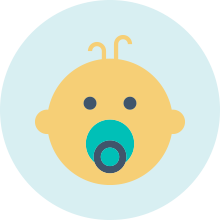
Childcare

Moving Expenses

Living accommodations
Travel costs

Equipment
Training
What could my experience look like?
| Term | Broad Definition |
|---|---|
| Work-Integrated Learning | |
| Internship | Placement within an organization with staff member designated as a mentor. Financial remuneration may be included, or student may earn academic credit or other credential. |
| Co-op | Academic program in which curriculum is designed so that the students alternate study and work terms with paid employment and supervision / mentorship. |
| Practicum/Clinical | Involves practice-based work experience under the supervision of a professional. Can be stand-alone or course component for which grade or evaluation is assigned. May or may not be mandatory. |
| Course-Based | |
| Community Service Learning/Community Engaged Learning | Volunteer experience within an external community-based organization in which the student makes a specific contribution to the organization and/or community. |
| Project-Based Learning | Engages a student or students in finding solutions to business- or community-identified problems, often culminating in a final product or presentation. |
| Simulation/Case-Based Learning: | A case or problem used to simulate a particular context or situation where students work to acquire certain skills, knowledge and attitudes to critique or problem-solve. |
| Applied Research | |
| Applied Research | Research conducted by a student under faculty guidance in an academic, community or industry setting. |
| Community-Based Research | Students actively involve community members or those whose lives are affected by the issue in all phases of the research process. |
| Field Experiences | Students work in an authentic setting to study and apply theoretical knowledge. |
| Co-curricular Development (categories in this area will be unique to each institution): This category may include (but is not limited to) elements such as competitions, showcases, symposia, conferences, events, work-study, or other forms of experiential education that adhere to CEWIL and the National Society for Experiential Education. | |
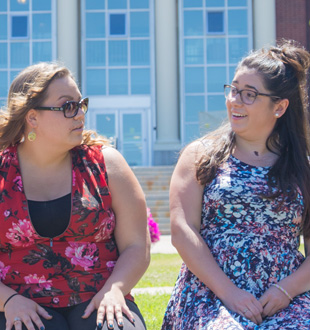

What is experiential learning and what could an experience look like?
| Term | Broad Definition |
|---|---|
| Internship | Placement within an organization with staff member designated as a mentor. Financial remuneration may be included, or student may earn academic credit or other credential. |
| Co-op | Academic program in which curriculum is designed so that the students alternate study and work terms with paid employment and supervision / mentorship. |
| Practicum/Clinical | Involves practice-based work experience under the supervision of a professional. Can be stand-alone or course component for which grade or evaluation is assigned. May or may not be mandatory. |
| Service Learning | Volunteer experience within community-based organization in which the student makes a specific contribution to the organization and /or community; normally a course component. |
| Co-curricular Development *Opportunitites in this area will be unique to each institution | This category may include (but is not limited to) elements such as applied research, international experiences, community engaged learning, organized, co-curricular learning, or other forms of experiential education that adhere to the National Society for Experiential Education. |
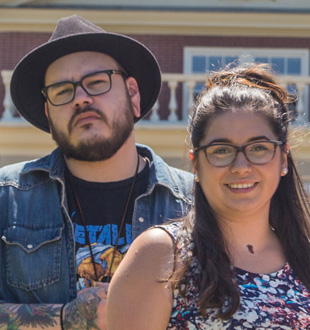
Am I eligible?
Students must:
- Be a registered full or part-time student
- Be of Indigenous Ancestry
- Participate in meetings and focus groups and completed reflective holistic evaluations, as required
Employers must:
- Be operating in New Brunswick
- Be willing and open to champion cultural sensitivity in the workplace
- Demonstrate investment towards the Indigenous student's placement
- Provide adequate supervision, training and mentoring
- Participate in surveys, focus groups and consultations, as required
I WANT IN! WHAT COMES NEXT?
As a student or as an employer wanting to apply, please contact the Future Wabanaki lead at your University to get started today!
Katelyn Copage
UNB
Indigenous Experiential Education Coordinator
copage.k@unb.ca
(506) 453-4840 ext. 3579
Patty Musgrave
MTA
Indigenous Affairs Coordinator
pmusgrave@mta.ca
506-364-2127
Natacha Sirois
UMoncton – Edmundston campus
Indigenous Affairs Development Officer
natacha.sirois@umoncton.ca
506-737-5045
Gage Perley
St. Thomas University
Indigenous Experiential Learning Coordinator
gperley@stu.ca
506-452-2119








